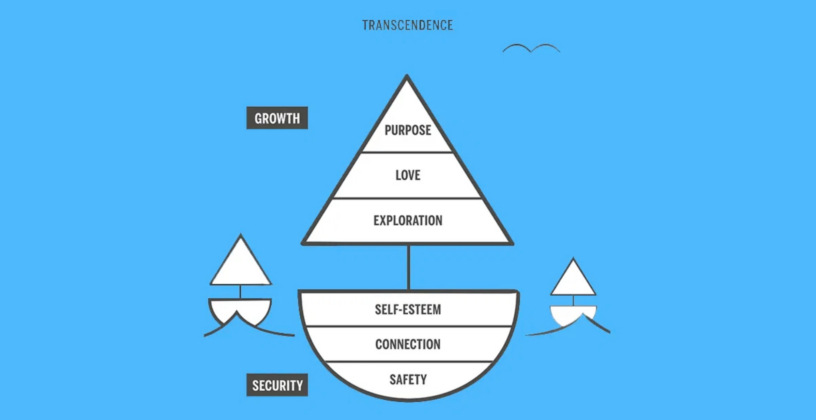Stand Together Foundation recently hosted a series of webinars for Catalysts to explore the implications of self-actualization. Nonprofit leaders rarely spend time reflecting on their own needs, hopes, and dreams—but that reflection is a critical ingredient for meaningful work.
This article summarizes some key insights from our conversation with social entrepreneurs in the Catalyst community.
As a nonprofit leader, your behaviors and beliefs will invariably shape your organization. If you lead with confidence, your team will see it. They'll also notice if you lead with uncertainty. If you feel safe, you'll be prepared to make bold and effective choices. But if you feel insecure, you'll make decisions based on that insecurity.
In other words, your individual self-actualization journey is vital to the success of your organization. Pursuing self-actualization will improve your sense of fulfillment and direction, and it will have a positive net benefit on your mission. [caption id="attachment_4010" align="alignnone" width="816"]

We use the sailboat metaphor , borrowed from the work of Scott Barry Kaufman, as a model for the factors at play in self-actualization. This metaphor includes a "boat" consisting of security needs like safety, connection, and self-esteem, and a "sail" consisting of growth needs like exploration, love, and purpose. Together, these elements help you navigate uncertain waters.
But how, specifically, can you pursue self-actualization in your busy daily life as a nonprofit leader? And how can you expect that pursuit to pay off?
Building the boat: Addressing your security needs
You're likely working in the social sector because you want to have a positive impact on the world. And as a leader with both employees and beneficiaries to worry about, it can be easy to "fast-forward" past your own needs in pursuit of the larger vision.
But one of the best things you can do for your team, community, and society is to ensure that your own security needs are being met. Do you feel safe? Are you connected to others? Do you have healthy self-esteem? Unless your answer is a resounding "yes" to all three, it will be hard to really show up for others in a healthy way.
Here are a few practices to consider as you invest in your own security needs:
- Examine where your perspectives and beliefs are coming from. Are you making decisions because you've carefully examined your options, or because you're feeling insecure?
- Don't treat yourself or your organization as a martyr by elevating others at your own expense. Instead, try shifting to a growth mindset: "We're all better off when we're all empowered."
- Invest in your own security needs as part of your strategy, not in spite of it. You can't be impactful if your fundamental needs are unmet.
Using the sail: Addressing your growth needs
If you have addressed your security needs, you are more free to pursue growth needs like love, exploration, and purpose. Of course, self-actualization isn't linear, so you aren't prevented from pursuing growth if you're still struggling with security needs—but you'll flourish more with a strong foundation.
Leaders who successfully invest in their growth needs are able to push their work and their organizations further than ever before. If you're working through a challenge from the perspective of exploration, you're more likely to consider creative solutions. If you're operating from a clear sense of purpose, you'll be more resilient and focused.
Here are three additional practices to help you invest in your growth needs:
- Be flexible with your definition of "love." You might love your work because it taps into your natural talents and interests; you might also love it because you're committed to the outcomes of your work. The type of love that drives you might even change every day.
- Use exploration to stay engaged. Trying new things can help you see problems from a new perspective and maintain momentum as you take on complex challenges.
- Give yourself room to breathe. You can't operate creatively and purposefully if your schedule is packed with meetings and operational obligations. Remember to budget time for reflection and working on things that you love.
Learn more about Principle Based Management and how it can help you transform your results.



